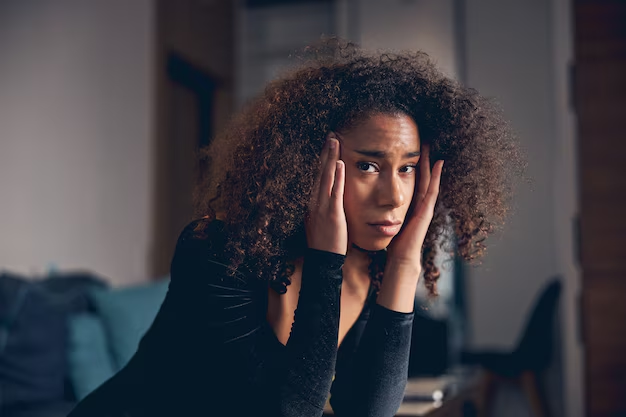The Origins of Anxiety: Understanding Its Roots and Influences
Anxiety is a common experience, touching the lives of many across the globe. While it can be a natural part of life—think the flutter of nerves before speaking in public or the worry over a looming deadline—it can also become overwhelming, impeding daily functioning. Understanding where anxiety comes from is the first step in managing it effectively. This article delves into the various origins of anxiety, offering insights that empower you to grasp this complex emotion from a holistic perspective.
What Triggers Anxiety? Unraveling the Causes
At its core, anxiety is the brain's way of signaling a threat, real or perceived. However, the triggers of anxiety are diverse and multifaceted. Here we explore some key contributors:
Biological Factors
Genetic Influences
Research suggests that genetics play a significant role in anxiety. If you have immediate family members with anxiety disorders, your chances of experiencing anxiety may be higher. This doesn't mean you are destined to develop anxiety, but it underscores a potential vulnerability.
Brain Chemistry
Neurotransmitters like serotonin, dopamine, and norepinephrine are crucial for mood regulation. Imbalances in these chemicals can contribute to feelings of anxiety. The brain's fear-processing centers, notably the amygdala, may also play a critical role in anxiety disorders.
Environmental Triggers
Stressful Life Events
Major life changes, such as losing a job, moving to a new city, or experiencing a breakup, can trigger anxiety. These events can be emotionally taxing, leaving individuals feeling uncertain and overwhelmed.
Traumatic Experiences
Past trauma, especially in childhood, can have long-lasting effects on mental health. Events such as abuse, neglect, or witnessing violence can lead to heightened anxiety responses later in life.
Psychological Factors
Personality Traits
Certain personality traits, like high sensitivity or a tendency toward perfectionism, can predispose individuals to anxiety. People who are prone to worry or have a strong need for control may experience heightened anxiety levels.
Cognitive Patterns
Negative thinking patterns, such as catastrophizing—the habit of imagining the worst-case scenario—can amplify anxiety. Similarly, excessive rumination on what-ifs can lead to a perpetual cycle of worry.
Lifestyle-Related Causes
Diet and Nutrition
Believe it or not, what you eat can impact anxiety. Diets high in caffeine or sugar, or lacking in omega-3 fatty acids and other essential nutrients, can exacerbate anxiety symptoms.
Physical Activity Levels
Regular exercise is not only vital for physical health but also for mental well-being. A sedentary lifestyle can increase the risk of anxiety, while physical activity has been shown to reduce symptoms.
Understanding Anxiety on Different Levels
The complexity of anxiety means it often requires understanding from various angles. Here are some more insights into how anxiety presents and what influences it:
Acute vs. Chronic Anxiety
Acute Anxiety
This type of anxiety is temporary and often linked to a specific event or situation. For example, feeling anxious before a big presentation or awaiting important news.
Chronic Anxiety
When anxiety persists beyond the event or becomes overwhelming, it can be classified as chronic. This long-term anxiety often indicates an underlying anxiety disorder.
Anxiety Disorders Spectrum
Generalized Anxiety Disorder (GAD)
Characterized by persistent worry about various aspects of life, GAD can make everyday activities seem daunting.
Panic Disorder
Marked by sudden, intense episodes of fear known as panic attacks, panic disorder can cause physical symptoms like heart palpitations and dizziness.
Social Anxiety Disorder
This disorder involves intense fear of social situations due to concerns about judgment or embarrassment, impacting social and professional interactions.
These disorders highlight that anxiety is not a one-size-fits-all experience, emphasizing the need for personalized understanding and approaches.
Practical Steps for Addressing Anxiety
Arming yourself with knowledge about anxiety is empowering, but understanding alone is not enough. Here are actionable steps for managing anxiety:
Building Resilience
Mindfulness Practices
Engage in mindfulness techniques, such as meditation and deep breathing exercises, to anchor yourself in the present and mitigate anxious thoughts.
Cognitive Behavioral Strategies
Cognitive-Behavioral Therapy (CBT) techniques can help you identify and reframe negative thinking patterns, reducing anxiety's grip over time.
Lifestyle Adjustments
Balanced Diet
Adopt a diet rich in whole foods—fruits, vegetables, lean proteins, and whole grains—to support overall well-being and stabilize mood.
Regular Exercise
Incorporate physical activity to release endorphins, the body's natural stress relievers, and improve your emotional resilience.
Seeking Support
Community and Support Groups
Connecting with others who understand your experiences can be both comforting and insightful. Look for community or online support groups.
Professional Help
Consider speaking with a mental health professional who can provide tailored guidance, tools, and therapies to address anxiety effectively.
Crafting a Resilient Mind: Navigating Anxiety's Challenges
Understanding anxiety is a journey that requires patience, persistence, and self-compassion. While its roots can be deep and varied, recognizing the patterns and influences in your life is a step toward reclaiming your peace of mind. As you navigate through anxiety, remember that you're not alone and that managing your well-being is within reach with the right knowledge and tools. Each step forward, no matter how small, counts toward a more balanced and empowered life.
Key Takeaways on Navigating Anxiety 🌿
- Genetics and Brain Chemistry 🧠: Anxiety can be influenced by genes and neurotransmitter imbalances.
- Environmental and Lifestyle Factors 🌍: Stressful events, trauma, diet, and exercise affect anxiety levels.
- Understand Different Forms of Anxiety 🔍: Differentiate between acute, chronic, and specific disorders for targeted approaches.
- Practical Coping Strategies 🛠️: Engage in mindfulness, exercise, and cognitive restructuring for better management.
- Professional and Peer Support 🤝: Don’t hesitate to reach out for professional guidance and community support.
With this foundational knowledge and practical guidance, you're well-equipped to understand anxiety's origins, manage its impact, and take steps toward a fulfilling, calmer life. 🧘♀️

